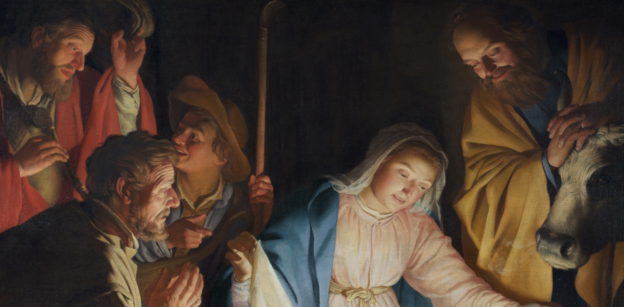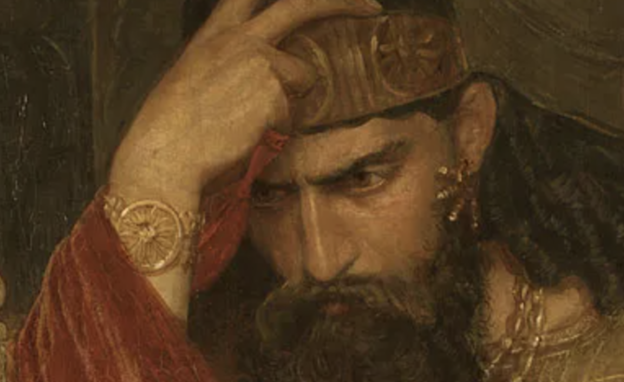Two of my grandparents died when I was around 10. A few years ago now, when my oldest son was a baby, we took him to Christchurch to meet family on our side living down there. We visited the graves of my grandparents, and grief returned 20 years later. Grief never really goes away. The emotional pain subsides, but we always grieve those we have lost, in memory, in events and anniversaries, and when we speak or write of our loss.
David knew grief well, and knew that it sometimes needs expressing. While he and his men had emotionally grieved the death of Saul, Jonathan, and so many of Israel’s army, that was not enough. David composed a lament, or written expression of grief. His lament reminds us that grieving in this sinful world is normal. Grieving is an ongoing process, and one we should acknowledge as part of life. Because grieving will only truly cease when we are at God’s side.
After David received word of Saul and Jonathan’s death, he took time to produce a reflection on his and Israel’s loss. He grieved with this lament, and instructed that others should learn it to grieve too (vv.17-18).
While David himself mourned the loss of a dear friend, Israel too had suffered loss. Their king was dead, and with him shame had come upon Israel. “Israel’s glory” was tarnished, “How the mighty have fallen!” (v.19).
The defeat was not just a military or national one, but a religious defeat too. David does not want the pagan victors in Gath and Philistia gloating, because they would wrongly assign the victory to their fake god Dagon (v.20). The place of disgrace, Gilboa, should be a barren place to reflect and remind Israel of how the soldiers’ shields did not protect them when they needed it (v.21).
This expression had a purpose. It gave Israel’s soldiers something to galvanise themselves over when they went to put matters right.
David’s lament then turned to showing thanks for Jonathan and Saul’s life. David speaks of how both were mighty soldiers who struck down their enemies (v.22). He speaks of how they were loyal to each other, father and son (especially Jonathan), right to the end (v.23).
David did not gloat at the death of Saul, who opposed him so much. He reflected on the good of Saul, as a person and for Israel. Israel’s daughters (probably especially the wealthy ones) should mourn Saul’s death, because he lavished them with wealth and prosperity (v.24). Wealth which came from his unity and rule over Israel, compared to the oppression felt in the time of the Judges beforehand.
Finally, David turned to his personal grief and loss of his dear friend Jonathan. The women would weep for Saul, David would weep for Jonathan. Saul may have endeared himself to the women by giving them expensive “scarlet” clothing and “ornaments of gold” (v.24). But David was “distressed for [his] brother, Jonathan” (v.25). Jonathan had endeared himself to David with a love that “surpass[ed] the love of women” (v.26).
Some people read this like it is from an erotic novel. What nonsense. Jonathan had openly declared loyalty to David as the next king, a role everyone assumed was Jonathan’s (including Saul)! They had a deep and close friendship, hoping to see each other succeed in the roles God had called each of them to. Their commitment towards each other was covenantal in nature. This was not about erotic desire, it was about faithfulness and self-sacrifice.
With that note, David brought his lament to an end. “How the mighty have fallen, and the weapons of war perished!” (v.27). A terrible loss for both Israel and David.
While this passage is not a “how to” for grief, it does remind us that there is and can be more to going through grief than just the emotional distress we feel. Working through that grief together, perhaps in written or spoken form, and in prayer to God is a right and proper way to acknowledge loss.
Likewise, the writing of this lament as something to teach others reminds us that grief is an ongoing process that we can experience for many years. We must be compassionate and understanding to people who grieve the loss of a loved one long after the world might say it is time to “move on.”
Likewise, recognising loss should be part of the Church’s witness. The world is not as it should be. Suffering and death are not natural, but the result of sin. When we only focus on the positive in our fellowship, teaching, and worship, and avoid the negative, we do everyone a disservice. Including ourselves.
We still live in a day where we weep as we sow the seeds of the kingdom (Ps. 126). One day, when Christ returns and puts a final end to grief, we will return with songs of joy. Until that day comes, our grief reminds us that weeping endures for the night, but joy comes with the morning.




